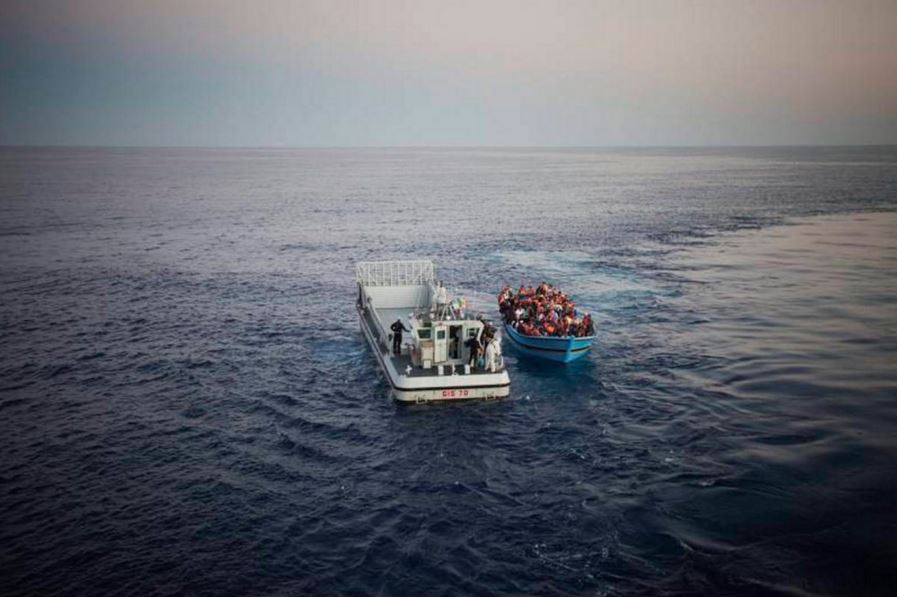Syriza’s
capitulation to the troika has made the plight of refugees even worse.
 |
| Refugees in the Mediterranean Sea in 2014. UNHCR / Flickr |
Last year, the attempt of Greece’s newly elected
radical-left government to resist austerity policies imposed by the European
Union institutions and the International Monetary Fund put the country at
the center of world attention. This battle was definitively lost when Alexis Tsipras capitulated
in July to the demands of the creditors, signing up to a third memorandum only
days after a referendum in which Greeks had rejected a softer EU proposed
austerity package.
Since that moment, the plight of Greek society
has only deepened. But it is now a silent suffering, deprived of the
expectation of change and hope that had fueled the mobilizations of recent
years.
But 2016 again made Greece headline news, this time
for a different reason. The laboratory of neoliberal shock therapy is also
Europe’s entrance gate for the millions of people leaving countries devastated
by war and poverty.
The refugee crisis has
illuminated how “Fortress Europe” acts as the complementary side of a
neoliberal, deeply antidemocratic, and authoritarian “European integration.” It
has killed the hopes of a left which believed it was possible to break from
neoliberalism within the framework of the EU, as “European values” became an
alibi for the display of imperialist violence and hypocrisy.
The Mediterranean’s role as the graveyard of Fortress
Europe — and southern Europe’s role as its guards — is not new. The
“externalization” of the EU border started in the early 1990s and acts as the
indispensable supplement to the “free movement of capital, goods, and people”
inside the EU — with the movement of “people” always posing the most problems.
